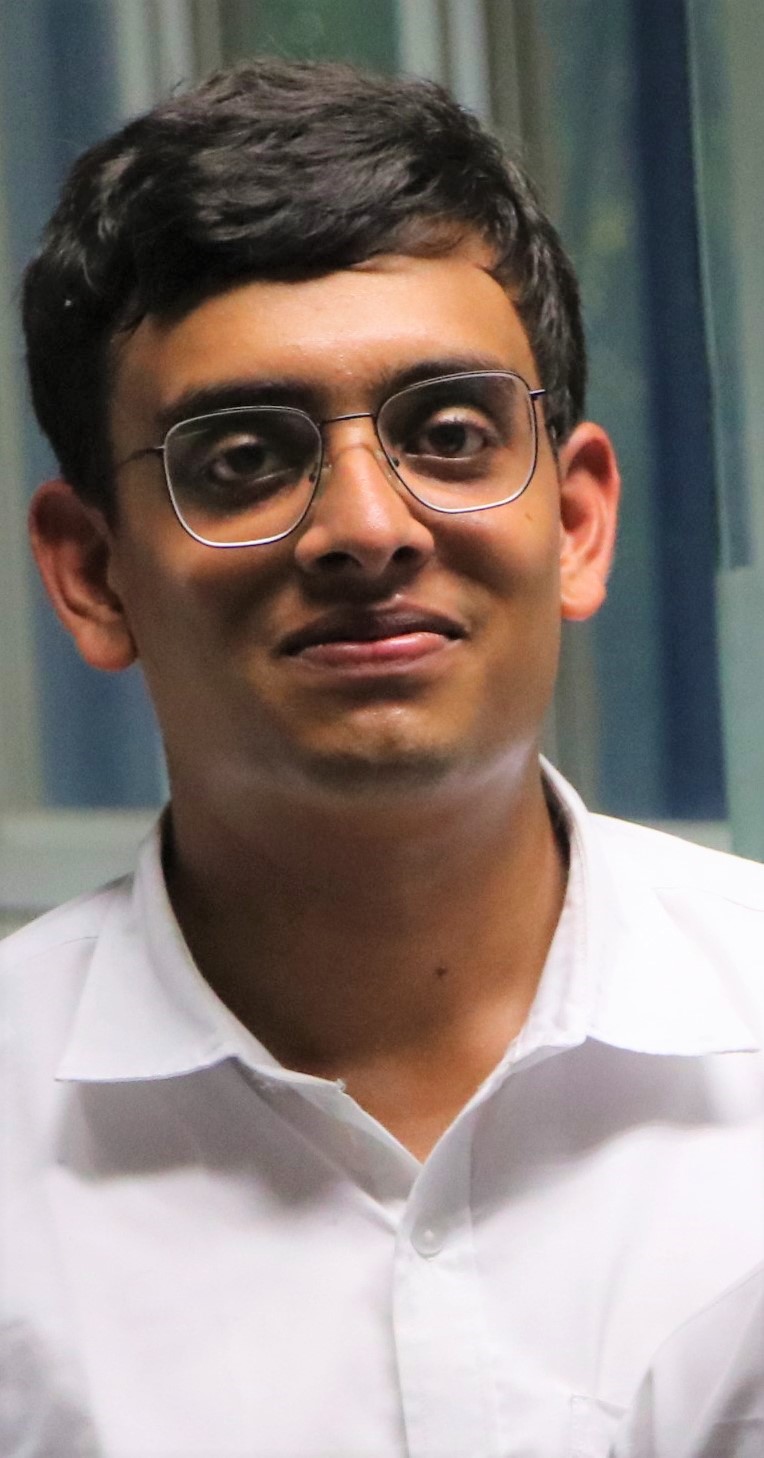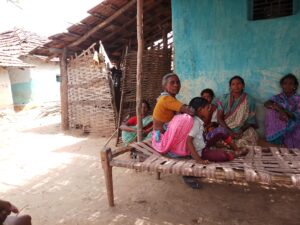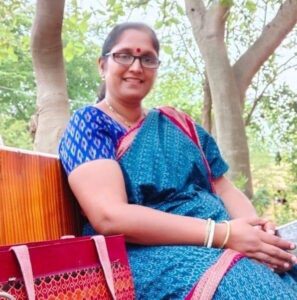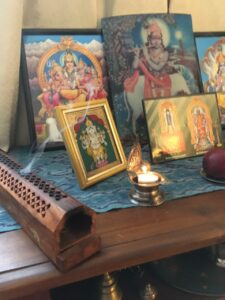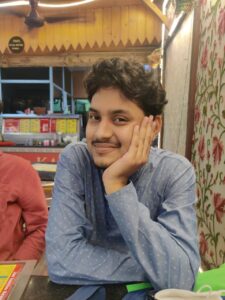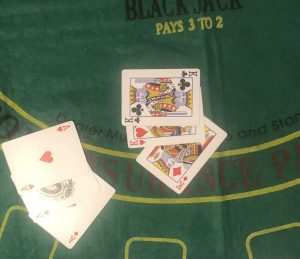Abi La
Croydon, UK
A map of the world was spread across the wall opposite me with, “Where I Come From,” written across the top in chunky green felt tip pen. The pins crowded around Southern England were so numerous that many had taken refuge in the Atlantic Ocean or fallen into the English Channel. There were a few dotted around continental Europe, India, Pakistan, and Bangladesh. I squinted, two in Tamil Nadu. It was always a bit strange being in a different school on a Saturday, as though we were weekend ghosts invading the space of students who normally filled the classrooms and corridors.
The gym door opened, and timid winter sunlight streamed over us in ribbons. The gym smelt of rubber and sweat. We put down our backpacks and water bottles, pulled off our shoes and socks, and arranged ourselves into rows. Our teacher, Ms. Anjali, was battling a CD player in the corner of the room. Chatter broke out, someone gasped, a kolusu on someone’s ankle jiggled energetically. The CD sputtered to life, skipping a couple of thayum thakka beats and then settled into its rhythm. Ms. Anjali hurried to the front of the class, wisps of long black hair trailing after her like tentacles, trying to avoid a diffusion of our concentration.
“Namaskar, everyone. Welcome,” she said, performing the introduction to the class. It starts with gratitude: to the earth, to the guru, to the audience. She lowered her eyes to the ground and stood up, hands in prayer.
“Namaskar, miss,” we chanted, mirroring her movements in response.
Back straight, bend more at the knees, express with your eyes, left then right then left then right, slower, faster and that’s it. Perfect.
Coimbatore, Tamil Nadu
Thakka jimmi thakka junnu thakka jimmi thakka junnu, the tabla and sitar players sweated as they beat out their rhythms.
Off-white ceiling fans, faded from use, whirred as hard as they could, engaged in Olympic activity of their own. They were no match for the Coimbatore summer heat, which could reach forty degrees Celsius, exhausting even the flies hovering lethargically around piles of cow dung outside.
“AC?”
“No AC.”
“No AC?”
“No. No AC.”
News murmured through the crowd, of at least a hundred and fifty people, that there was no AC.
Aunties and mamas, periammas and chithis, ammammas and thathas flapped and fanned themselves with just about anything – saris, handkerchiefs, the elaborate paper invitations, an embossed Shiva on thick cream card nestled underneath sheaths of red tissue paper.
Little girls, in their itchy, brightly-colored pattu pavadais trailing to their ankles and jangly jhumkis dangling from their ears and gold kolusus, squirmed in their plastic grey seats, and tried to escape. They hoped to find respite from the heat on the tiled floor. Their mothers dragged them back up and scolded to sit down and stay still.
A tiny baby in a yellow kurta hid in the folds of his mother’s green and white sari, as she switched him from one hip to another to air out her yawning sweat patches.
All of this just made everyone feel hotter.
The occasion was an arangetram for a cousin of a cousin. A graduation ceremony signaling the end of formal Bharatanatyam training and an opportunity to vigorously flaunt social status. I’d lost track of the exact lineage.
Thakka jimmi thakka junnu thakka jimmi thakka junnu.
Sweat between my thighs had mixed with the talcum powder I’d liberally patted down my legs before leaving my grandmother, my ammamma’s house, forming a gloopy paste in the heat.
I’d stopped dancing Bharatanatyam the year before when I turned fourteen. After we moved to Essex, it wasn’t convenient to drive an hour each way to Eastham on a Saturday. I could have fought for it, but didn’t, not wanting to weigh down my new life with an activity that no longer carried cultural capital. Each minute of that hour-long drive pulling me further away from the requirements and customs of a different society. I started by skipping a Saturday here and there, and fell behind, forgot routines, became frustrated as my movements no longer flowed. The final straw came when I was asked to move down a level. I didn’t attend class after that.
When I’d been surrounded by Anjalis and Gayathris and Archanas in Croydon, I’d been at the front of the gym hall, thumping away. Saturday Tamil class, then Tamil dance. Tamil friends. Tamil food shopping for chow chow and vendakka and fresh coconut, then Saravana Bhavan for masala dosa and sweet mango lassi as a treat. Maybe a packet of Hubba Bubba for the car ride back, consumed rapidly one after the other, which left me with an aching jaw by the time we got home. In Croydon, it sometimes felt like half the population was Tamil. It was a Tamil life, I was just another brown girl in a brown world. In Essex, I was surrounded by Lucys and Sarahs and Katies, who placed zero cultural value on Bharatanatyam.
But now that I was here, a year after giving up, in this hot, itchy, palatial grandeur, I wished it was my turn on the stage, performing the dance of Lord Shiva himself.
Bharatanatyam heaves with emotion and feeling, story through movement, prayer and thanks; the mouth, hands, feet, arms, legs, fingers, but most of all the eyes (and eyebrows) are used to communicate two thousand years of history. You dance millennia, you dance planets, you dance as Krishna with his flute, you dance as a universal quivering supreme being. The comment sections of Bharatanatyam videos on YouTube may just be one of the most sacred places on the Internet; such are the outpourings of love and adulation in multiple languages.
Ly Stanley from Panama writes: “I’m from Panama, I admire this culture so much! Deeply in love with India! God bless you all! I will soon start practicing this.”
A slight boy who was barely four feet tall expertly weaved between rows of seats handing out plastic bottles of cold water.
“Nundri,” I said. Thank you.
The boy dropped a bottle and an overweight woman with thinning hair in a beaded red sari nudged him out of the way with her swollen sandaled foot. These are the tiny butterfly gestures of Indian casteism flitting around. The sense of God-endorsed superiority packed tightly into the protons and neutrons of every atom of Brahmins. Class may broadly be about ownership and relationship, or lack thereof to the means of production, and the exploitation of your labor. Caste is about your soul. The purity of your blood. The blood that courses through your veins is considered contaminated, in this lifetime, potentially in the next, if that is the way it goes in the lottery of your birth. The boy, with a blank expression of terror, bowed and bowed and then ran away.
Thakka jimmi thakka junnu thakka jimmi thakka junnu.
The sitar and tabla stopped, but the audience continuously fanned and groaned, craning their necks to see whether that was the maami whose son married a white woman in the US or the athai who’d had a nose job.
The dancer walked out onto the stage and the crowd hushed.
She wore a bright red blouse and mustard yellow silk sari, long black hair augmented with fake hair interwoven with fresh jasmine flowers. You could smell the jasmine, mixed with the crowd’s sweat. The aroma of a giant, sweet armpit, hovering in a layer above us. Bright red henna feet and hands with big red circles on her palms. Thick leather salangai with bells around her ankles, that’s how you know that your thakka jimmi’s and thakka junnu’s are in time, and are divine. The nethi chutti on her forehead glittered with gems, her oddiyanam waist belt cinched the sari pleats in place, the ones that she would open up to transform into Durga or a lotus. A heavy maalai hung around her slender neck, her gold nose ring was a perfect O stretching back to her ear. Thick black kohl ringed her brown eyes.
Thum, thay, they, they, tha they, tha tha tha, tha they.
We were off. She started by giving thanks, and her eyes widened, searching the crowd. Everyone finally stopped scratching, itching, swatting, and sat still. She was a goddess, she was thousands of them. She washed her red painted hands in a small bronze tumbler of water and placed it on her head. She was so expressive that she looked in pain at points, real tears welling in her huge eyes. She cajoled and coaxed the audience, and wrapped us in the circles she created with her arms. It reminded me of water flowing through a structure designed to mathematically precise specifications.
The pace picked up as the dance went on, thay, thay, thum thum, thay thay, thumthumthumthumthumTHUM. The dancer ended on one knee, hands clasped in prayer. Her body trembled, and she begged or rejoiced with us, maybe both.
Afterwards we queued for five minutes, maybe more, to pay our compliments and praise the performance. My silver and blue pavadai was sticky with sweat making each step forward more uncomfortable than the last.
We reached the front of the line. The dancer was at the back of the stage changing out of her sari and accessories.
“Beautiful, so beautiful,” ma said. “What a stunning performance. Congratulations.”
“Oh ya, thank you, ya. My daughter practiced so hard her feet bled. There’s blood on the stage even, look,” the aunty pointed at the stage with her elbow, encouraging us to search for blood. We were too far away to see.
“Mmmhmm,” ma said. “Very impressive.”
“We told her even, you are best in class, no need no need, but still. She did. On top of all extra tuition, sports and all. Good girl this one.”
This was a lie. They made her practice until her feet bled. A lobotomized donkey could have told you that.
“And you? London isn’t it?”
Ma didn’t have the patience to explain the difference between London and Essex, so she nodded, yes yes.
“And this,” she said, turning to me. “Is your eldest?”
“Yes,” ma said, “she’s fifteen now, in secondary school.”
“Oh, is it? Do you like it, the schooling and all?”
‘Yes, aunty,” I said, it was my turn to lie now.
“Top of your class, is it?”
“No, aunty,” I said.
“Konju karupaa illayaa? Paavamae,” she said, turning to my Mum.
“Bit dark isn’t she, poor thing.”
Ma glared at her. I went outside, where it’d cooled down a bit. I breathed in, you know, that India smell. Ash and flowers, exhaust fumes and jasmine, cow dung and human sweat, rickshaw dust and oil. There is no smell in the world like the India smell. A lizard approached my foot, as though it were a tourist looking for a prominent landmark. It bumped up against my toe and spun around twice, disorientated, before jerkily shooting off across the concrete.
A host of Ambassador cars waited outside to take us to the reception. The drivers leant on the bonnets, and wore vaishtees or frayed pant-suits, as they tried to stay out of the sun while on alert for when their Brahmin masters called upon them.
***
Tamils are a dramatic group. Weekly threats of death by a matriarch here and there by dousing herself in kerosene and setting the house on fire are interspersed with forensically detailed conversations about whether the local tailor is over-charging, or the dhobi is cleaning one’s clothes properly.
The two primary dynamics in ammamma’s house were obedience at all costs, and terror at insubordination. One summer in the 90s we took a couple of jars of Skippy crunchy peanut butter as part of The Gift. The Gift packages were assembled throughout the year; ma put excruciating amounts of effort into them,. She found the best buy-one-get-one-free deals on nail polishes and soaps, underwear and travel games, like portable Connect 4. And chocolate. Indian chocolate back in the day had an almost anodyne quality to it; like it was manufactured in the same factory as detergent or soap. So, we took boxes and bags of chocolates, tins and assortments. The Gift(s) occupied at least one suitcase: check in, not hand luggage.
Distribution and analysis of The Gifts was a post-arrival ritual. That year, everyone tasted peanut butter, and compared it to different Indian condiments in texture and taste. Then the jars were put in the fridge, which was guarded like a fortress. Children were not allowed to open the fridge, and ma, in her mid-thirties at the time, had restricted access. These were the rules, and they stayed the same every summer.
On one heavy monsoon evening, the rain lashed down with such force that thatha ran out and clipped the outdoor wooden swing in place to stop it thrashing. Afterwards, moisture clung to the air and it smelled like wet mud outside. We ran out into the compound and watched squiggly, engorged leeches surfacing, looking for a blood-sucking meal, and got bitten in neat rows by angry mosquitoes that’d hurriedly laid fresh eggs in the shallow puddles.
Coimbatore chithi, ma’s youngest sister, went home. Her only son was going through a phase where he chased his cousins with a tennis racket to beat us. We usually had to sprint, scream and lock ourselves in the bathroom or the one bedroom with a lock. After he lopped my sister on the head and gave her a big bump, he’d been dragged away as punishment.
Some combination of those that remained were playing carrom board, a sit-down version of pool with plastic discs instead of balls and a striker piece instead of cues, when ammamma strode into the living room and quaked with rage.
For a woman under five feet three inches, she had a presence that could not be contained by anything as feeble as walls and concrete, it overflowed out into the street. The back of her sari had come untucked and flayed with the fan’s breeze. Her mouth was a straight line, her eyes shone brightly like dark brown marbles. Strands of hair danced around her face, which looked funny, but we didn’t dare laugh.
“Who,” she said, in a deathly quiet voice, “opened the fridge and ate the peanut butter?”
She held up the jar, it looked full. There was no response.
Tension mounted, it was palpable. Someone would have to take the blame.
Ma stepped forward.
“I took it,” she said.
Ammamma walked out of the room and ma followed for the inevitable scolding. As she left, she looked at us anxiously over her shoulder.
Ammamma had her tender moments though, she was sometimes able to love despite the fierce currents that ravaged her mind, especially with me. We’d lie down together for an afternoon nap on the hard wooden bed which hurt at the beginning of the summer but felt welcoming by the end. I’d drape the end of her sari across me as a blanket and bury my head in the blissful softness of her upper arm folds, better than any pillow, and pretend to sleep while listening to the sounds in the street.
Whole summers would pass that way. Once it cooled down, Coimbatore chithi would sit us all in a row on the outdoor wooden swing and plait our hair in single or double French plaits with jasmine flowers looped through and we’d beg to go out, just for a while, on my uncle’s motorbike or for a rickshaw ride. Four of us crammed in the back of a rickshaw, lean forward, lean back, lean forward, squeeze in, the dust and hot air, the onion bonda cooking on the streets, the endless stalls of unimaginable commodities; plastic buckets and watches, Rebok trainers and Adidos bags, incense and bodies folded within bodies, everywhere, in the street, on the buses, hanging off buses, five to a motorcycle with the baby balanced on a lap, smacking the bullock from the cart, sitting on the street, lounging on the street, squatting in the street, brown bodies everywhere, same same but everyone could tell, ours were a little bit different, they’d absorbed some English quality. In our own way all aching for India.
The obedience Olympics were conducted all summer in various competitions. Who finished their food fastest, who volunteered to go first for a bucket bath, who never ever went near the fridge, who wanted to go to the temple, who woke up at 5am to help with drawing kolam outside the house for festivals, but most of all, of prime importance, who patiently listened and groaned and moaned and ummed and ahhed at all the right moments, when ammamma told us how terrible, wretched, completely unbearable her life was.
The biggest thrill of the summer was when Coimbatore chithi bundled us into her Maruti van and we’d go to her apartment and sneak past her in-laws’ apartment next door (wives in South India are obsessed with hiding everything from their in-laws, despite everyone living in the same building and no one having anything interesting to hide), where we’d lie on mats on the floor with our feet in the air and watch movies like Die Hard, eating jalebi and pal payasam.
Going to the cinema was a big deal. Most movies are at least three hours long. My cousins, siblings and I bustled around her grabbing beverages and snacks like baby monkeys.
During the intermission, vendors walked the aisles and sold vanilla, chocolate and pistachio ice-cream and samosas. People shouted, cried, laughed, jumped and frequently moved around during the screening.
“Aiyoo, enough,” Coimbatore chithi moaned, handing over a stack of rupee notes to the stall vendor.
Years later, when I showed a Scandinavian boyfriend one of my favourite Tamil movie songs, he remarked that it was seventy percent repressed sexuality and thirty percent soft porn.
Coimbatore chithi handed dupattas around the group to protect us from the AC onslaught and we held hands in a human chain and took our seats. This wasn’t just any movie trip, we were here to see Terminator 3: Rise of the Machines. A level up from just a Tamil movie. My sister and I felt a mix of pressure and pride, as if our other identity was on display and needed to live up to the hype. A ringing testimony to American hegemony.
The opening score started, the curtains swished back, excitement rippled through the crowd, but wait. Oh no. The opening words about the future not being written yet were in Tamil, with English subtitles. For a movie not famed for the dialogue, dubbing took matters into the stratosphere of terrible. My sister and I snorted, unable to hold back our laughs. John Connor was a caricature, and the war between man and machine a pantomime. By the time Arnold Schwarzenegger came on screen, demanding “antha vundee kondu vaa,” (bring me that car), we were laughing so much we couldn’t breathe. We gulped in mouthfuls of salty, fried-food air and clutched our stomachs while Coimbatore chithi looked confused and our cousin slept on her lap, his face illuminated by the explosions on the screen.
***
Essex, UK
I woke up to the sound of rain slamming against the window and waited a couple of minutes for my eyes to adjust. 3pm, the clock next to my bed blinked brightly. It was dark gray outside. Jet lag hung from my eyelids like a curtain. I went to find ma. The door to her bedroom was wide open and she was sleeping, too.
I turned on the heating and went to inspect the fridge. Half a rotting onion stood proudly on the middle shelf and there were a couple of cartons of soy milk.
For reasons I can’t remember, ma and I had come back before my brother, sister and father. We lived in temporary accommodation, in a semi-permanent state of transition. The carpets were green and curled at the edges as though repulsed by the walls they were bound to. It was a Saturday, and I would be back at school on Monday, but time felt elastic and controllable, like Monday could be pushed away just by willing it so. The memory of landing at Heathrow at 7am had already faded and Coimbatore, Chennai and Tamil Nadu felt as distant as the seven thousand miles between us. In the days after we got back, I’d hear the ghost of a motorcycle revving or taste the road dust from a rickshaw ride. It was so quiet. The silence was a heavy blanket that smothered our surroundings.
“Kanna,” ma said.
I jumped.
We stood in front of the fridge, side-by-side, looking in like detectives analyzing a crime scene. Ma didn’t have to cook; we had some freedom, it was just the two of us. We sat at the small kitchen table and discussed our options.
We went to the supermarket and bought ingredients: vegetables, rice, yoghurt. Then, in a reckless move, we drove to the local shopping-centre and went to the food court. I ordered a jacket potato with cheese and baked beans and ate it so quickly it burned my mouth. This place was a purgatory where sedate people drifted around expressionless, carrying shopping bags, talking to each other in whispers. A kingdom of muted sounds.
There was no frenzy, chaos, or mass of thronging humans, no hint of the several thousand different noises at once creating the opera of India.
I fell asleep in the car and once we got back, I slept solidly through to the next morning. The rain had continued. Ma was chopping vegetables and preparing meals for the week ahead.
***
London, UK
“What do you want to drink?” My friend screamed at me, a couple of frothy spit balls landed on my cheeks.
“Gin and tonic,” I screamed back. I felt an accelerated motion behind me and turned around to find a blonde man on his back, legs in the air, a smashed iPhone clutched in one hand. His friend stood over him and poured a beer into his mouth. It was 9.30pm.
I pushed my way through the Friday night crowd and into the wire cage at the back. A view of a landfill site glimmered in the distance. My friend appeared a few minutes later, his face red in that patchy English way that reminded me of marble and thrust a drink at me.
“Fucking nightmare,” he said. He dropped his backpack and kicked it out of the way.
“Have you got them?”
“Yeah, one for each of us.”
This was exciting because he was a relatively new friend. We’d met at a house party and went on a date where he tried his best to relate to me. This involved sharing a rehearsed story about his cousin’s honeymoon in Goa. I tried to imagine having sex with him but footage from a documentary about how concrete is made kept flashing in my head as if some misfiring advertising algorithm had penetrated my neocortex. We’d decided to be friends.
As we were leaving, I saw an unmistakably South Indian woman sat on the floor clutching her foot. Someone was crouched next to her. I changed course, dipped my head, and surged towards her.
Crouching next to her, I said, “Are you okay?”
“I’ve cut my foot on glass,” she said and held up a foot cocooned in a blue sock soaked through with blood.
She put an arm around each of our shoulders and her friend and I carried her out of the bar.
Outside, she sat down on the curb and carefully pulled off the bloody sock. We leant forward to examine her foot, the cut was long, and stretched from under her little toe back to a few inches above her heel.
“Fuck. It looks like there’s still glass in there,” I said.
My friend walked over, “there you are!” he yelled, “we’re leaving, cab’s here.”
“I’ll meet you there.”
“What? Why? Who’s this?” He said, his pupils dense as black holes.
“She’s hurt and I just feel that I should stay…make sure she’s okay.”
“We can manage now, it’s totally fine,” the woman with the cut foot said. She had long wavy black hair and expressive brown eyes ringed with black eyeliner, which had smudged with all the excitement.
I got up and nearly toppled over with the force of my own momentum, as I landed sideways on a bin.
“I know this sounds mad,” I said to my friend. He reached over and pulled off a piece of lettuce off my jacket.
“But, I have this strong feeling that I need to go with her. It’s something…cosmic.”
“Are you sure this ‘strong feeling’ isn’t because you’re off your face?”
“No one uses air quotes anymore. I’ll call you tomorrow.”
I flagged down a taxi and we helped her in. I clambered in last and sat in the awkward seat facing the rear window. I needed to vomit and shit in that urgent way specific only to pills. The way that doesn’t listen to reason and can’t be told to go away through gritted teeth.
“Is everything okay?”
I realized I’d been talking to myself out loud, encouraging words, so I didn’t defecate in the back of this taxi.
“Yeah…yeah, I just….I just feel like I know you, you know?” I said, reaching across the car and taking her one free hand.
“Are you…high?” Her friend asked.
“Erm, possibly.”
“Brilliant,” the woman with the bleeding foot said, “that’s hilarious. It’ll make the trip to the hospital a lot more fun.”
“I think I might shit myself.”
A God of urban planning intervened. Five minutes later, I walked out of the petrol station toilet feeling like a goddess.
I bought a liter of water and chewing gum, and hopped back in, “the cab is totally on me,” I sang.
“So, tell me everything about you,” I took her hand again, leant back against the seat and watched tiny balls of light ping around behind my eyelids.
She was Tamil. She was a dancer. She worked in marketing and taught Bharatanatyam at the weekends to high school students. I stabilized by the time we got to A&E. A man lurched in and promptly collapsed, he was loaded onto a stretcher and rushed away. A woman clutched a baby with a vivid red rash close to her chest and rocked back and forth. A teenager with his arm in a makeshift sling scrolled aggressively on his phone. His green t-shirt looked like it was straining to get away from him, and curled up at the edges. The smell of sanitation and bleach hit the back of my throat, but I was somewhere else. I climbed up onto the stage and checked to see if there was any blood smeared on it. I floated to the changing room and watched as the dancer sat down, tears mixed with black kohl. I flew outside and circled the hall a couple of times looking down on the Ambassador cars. I zoomed all the way to the ground and landed with a thud next to the lizard.
I opened my eyes with a jolt, several people in the waiting room were staring at me.
The Bharatanatyam teacher took my hand, “I think you should go home.”
“What happened?”
“You screamed ‘NO’ really loudly.”
The red baby started to cry.
We exchanged numbers and I left, clumsily kissing her eyelid on my way out. It was half-past midnight. I took the night bus, sat at the front, opened the window fully and let the cold air blast my face while I drifted between worlds.
***
I tried not to slam the front door when I got back. I drank water from the tap in the kitchen and went to my room carrying a carton of orange juice, with a vague notion that I’d go back downstairs later to make baked beans on toast. I put on the wireless headphones I used for the gym and searched on YouTube for Bharatanatyam videos. It had been years since I’d even thought about the dance. Rivulets of movements and expressions exploded like an ecosystem in my addled brain.
I played one video, the thakka jimmi thakka junnu’s confronted me, challenged me, encouraged me to join them. I watched a couple more, and paused if an expression was too much to comprehend in a half-second, rewound to understand technique.
Then, in the darkness and dampness of my room in South London, I expressed gratitude, and thanked the earth, the guru, the audience, I touched the carpet to my eyes, and started to dance.
She practiced so hard her feet bled.
Who opened the fridge and ate the peanut butter?
Namaskar, miss.


Abi La was born in South India, raised in the U.K and now lives in San Francisco. Her writing has appeared in Vice, The New Statesman and The San Francisco Chronicle. A social entrepreneur, she co-founded Papi’s Pickles, a food social enterprise providing fresh and tasty Tamil food made by women from these communities who relocated to the UK during the civil war in Sri Lanka, and ImpactVision, an imaging and machine learning technology startup tackling supply chain food waste. Today, she is a tech worker and active organizer, and is writing her first novel.

![]()
